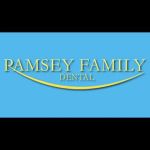- 1. What is Advanced Dental Hygiene?
- 2. Importance of Advanced Dental Hygiene
- 3. Advanced Techniques in Dental Hygiene
- 4. Common Dental Hygiene Mistakes to Avoid
- 5. How Advanced Dental Hygiene Improves Overall Health
- 6. Maintaining Good Dental Hygiene at Home
- 7. How to Choose a Dental Hygienist for Advanced Care
1. What is Advanced Dental Hygiene?
Advanced dental hygiene refers to a set of professional and at-home practices aimed at maintaining optimal oral health. Unlike basic dental hygiene, which typically involves regular brushing, flossing, and routine dental checkups, advanced dental hygiene encompasses additional preventive care, treatments, and strategies to address specific oral health issues, such as gum disease, tooth sensitivity, and tartar buildup. It often includes services provided by dental hygienists who have specialized training and expertise in a variety of advanced cleaning techniques.
Advanced dental hygiene goes beyond traditional methods to ensure that patients not only maintain their teeth and gums but also prevent serious oral health conditions. These specialized services can be particularly beneficial for individuals who are prone to dental problems such as cavities, gum disease, or tooth decay. Regular visits to a professional dental hygienist trained in advanced dental techniques can significantly reduce the risk of these issues and contribute to long-term oral health.
2. Importance of Advanced Dental Hygiene
The importance of advanced dental hygiene cannot be overstated. Proper dental hygiene is essential for maintaining good oral health, preventing tooth loss, and avoiding expensive treatments in the future. However, as dental issues evolve, basic hygiene routines may not be enough to address more complex concerns. This is where advanced dental hygiene steps in to ensure comprehensive care.
For example, individuals with gum disease (gingivitis or periodontitis) may require more frequent cleanings and advanced scaling techniques to remove tartar and plaque buildup from the teeth and below the gumline. Furthermore, advanced dental hygiene plays a key role in preventing the onset of more severe dental conditions, such as tooth loss or the need for root canals. Preventive care through advanced techniques helps to avoid long-term damage to the gums and teeth.
Additionally, advanced dental hygiene not only benefits oral health but also overall health. There is growing evidence that poor oral health can contribute to systemic issues such as heart disease, diabetes, and respiratory infections. By practicing advanced dental hygiene, individuals can lower their risk of these diseases, improving both their oral and overall well-being.
3. Advanced Techniques in Dental Hygiene
Advanced dental hygiene involves specialized techniques and treatments that go beyond typical cleaning and polishing. Some of the most common advanced techniques include:
- Scaling and Root Planing: This procedure is used to treat gum disease by removing plaque and tartar from beneath the gumline. It helps to smooth the tooth roots, promoting gum reattachment and reducing inflammation.
- Ultrasonic Cleaning: Using high-frequency sound waves, ultrasonic cleaning can remove plaque and tartar more effectively than manual scaling. This technique is gentle on the gums and provides a deeper clean.
- Fluoride Treatments: While fluoride treatments are often part of regular dental checkups, advanced fluoride therapies can help remineralize the teeth and prevent tooth decay, especially for individuals with high cavity risk.
- Laser Dentistry: Laser technology is used to treat gum disease, remove infected tissue, and promote healing without the need for scalpels or sutures. It’s less invasive and results in faster recovery times.
- Sealants and Bonding: Dental sealants are applied to the chewing surfaces of molars to prevent cavities, while dental bonding can be used to fix minor tooth imperfections and prevent further damage.
4. Common Dental Hygiene Mistakes to Avoid
While advanced dental hygiene provides a comprehensive approach to oral health, there are still common mistakes that many people make that can undermine their efforts. Here are some of the most frequent mistakes:
- Not Brushing Long Enough: Many people rush through brushing their teeth, which leads to incomplete cleaning. Dentists recommend brushing for at least two minutes, twice a day.
- Skipping Flossing: Flossing removes plaque and food particles from between the teeth, where toothbrushes can’t reach. Neglecting flossing can lead to gum disease and cavities.
- Using a Hard-Bristled Toothbrush: While it may seem like a hard-bristled brush would clean better, it can actually damage your gums and enamel. Soft-bristled brushes are recommended for most people.
- Not Visiting the Dentist Regularly: Even with excellent at-home care, regular professional cleanings are necessary to remove stubborn plaque and tartar. Skipping these appointments can lead to severe dental problems down the line.
5. How Advanced Dental Hygiene Improves Overall Health
Research has shown that maintaining optimal oral health can significantly impact your overall health. Poor oral hygiene is linked to a number of systemic health conditions, including heart disease, diabetes, and stroke. In fact, gum disease has been shown to increase the risk of heart disease by contributing to inflammation and bacteria in the bloodstream.
Advanced dental hygiene practices not only protect your teeth and gums but can also help reduce the risk of these serious health issues. By ensuring your teeth are free from plaque and tartar, you prevent harmful bacteria from accumulating in the mouth, reducing the likelihood of infection that could affect other parts of your body.
6. Maintaining Good Dental Hygiene at Home
While professional dental care is essential, maintaining good dental hygiene at home is just as important. Here are some essential at-home habits for advanced dental hygiene:
- Brush Twice a Day: Use a fluoride toothpaste to brush your teeth for at least two minutes in the morning and before bed.
- Floss Daily: Flossing is essential for cleaning between your teeth and preventing gum disease.
- Use Mouthwash: Antiseptic mouthwash helps reduce plaque buildup and fight bad breath.
- Limit Sugary Foods: Diet plays a significant role in oral health. Limit sugary snacks and drinks to reduce the risk of cavities.
7. How to Choose a Dental Hygienist for Advanced Care
When looking for a dental hygienist to provide advanced care, consider the following factors:
- Experience and Specialization: Look for a hygienist with experience in advanced dental procedures such as scaling and root planing, ultrasonic cleaning, or laser treatments.
- Credentials: Ensure the dental hygienist is licensed and has undergone the necessary training and certifications to perform advanced dental hygiene treatments.
- Patient Reviews: Check patient reviews to gauge the hygienist’s skill level and customer service. Positive feedback from other patients can be a good indicator of quality care.
For more information on advanced dental hygiene techniques and to schedule an appointment with a qualified dental hygienist, visit Dentistry Toothtruth today.







 Sunnymead Ranch Dental Center4.0 (465 review)
Sunnymead Ranch Dental Center4.0 (465 review) Courtney Hardin0.0 (0 review)
Courtney Hardin0.0 (0 review) Ramsey Family Dental5.0 (93 review)
Ramsey Family Dental5.0 (93 review) Cain Orthodontics, PC4.0 (95 review)
Cain Orthodontics, PC4.0 (95 review) Birch Lake Dental4.0 (258 review)
Birch Lake Dental4.0 (258 review) Legacy Family Dental4.0 (691 review)
Legacy Family Dental4.0 (691 review) The Importance of Oral Health Education During Pregnancy for a Healthy Pregnancy
The Importance of Oral Health Education During Pregnancy for a Healthy Pregnancy Best Tips for Brushing Your Teeth Properly for Healthy Gums: Essential Techniques for Oral Health
Best Tips for Brushing Your Teeth Properly for Healthy Gums: Essential Techniques for Oral Health Why Skipping Dental Checkups Can Lead to Bigger Oral Health Problems
Why Skipping Dental Checkups Can Lead to Bigger Oral Health Problems Advantages of Porcelain Dental Restorations
Advantages of Porcelain Dental Restorations How Can Diabetes Cause Tooth and Gum Problems? Preventing and Managing Oral Health Issues
How Can Diabetes Cause Tooth and Gum Problems? Preventing and Managing Oral Health Issues Healthy Habits for Promoting Good Oral Health and Hygiene: Tips for a Healthy Smile
Healthy Habits for Promoting Good Oral Health and Hygiene: Tips for a Healthy Smile